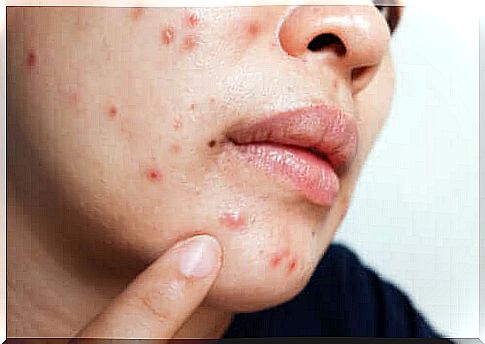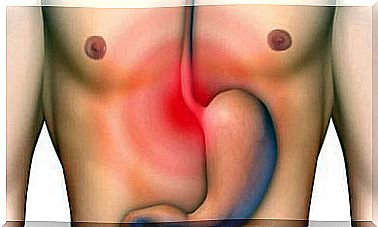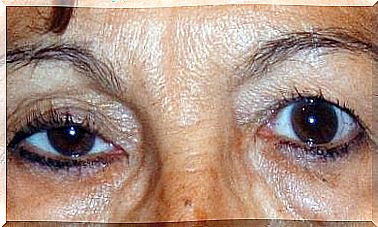Isotretinoin For Acne: Benefits And Side Effects

Today we will tell you more about the benefits and harms of isotretinoin. Isotretinoin is a drug that is useful for treating moderate to severe acne. It is available in capsules of 10, 20 and 40 milligrams and is estimated to be effective in 80% of cases.
The average treatment lasts 4 to 5 months. Doctors also sometimes prescribe isotretinoin to treat other skin problems or even some types of cancer.
Despite its effectiveness, it can cause significant side effects. For example, it causes birth defects, so pregnant women should not use it. At the same time, you should never take it at the same time as vitamin A supplements. Let’s take a closer look.
What is isotretinoin for?
While isotretinoin is good for treating various types of acne, doctors almost always prescribe it to treat a severe form called recalcitrant nodular acne. Doctors usually only recommend it when other approaches haven’t worked.
It is one of the most effective acne medications. In some cases, doctors also prescribe it to treat problems such as rosacea, hidrosadenitis suppurativa, folliculitis decalvans, chronic hand dermatitis, photoaging of the skin, and psoriasis. At the same time, professionals have recommended it for the treatment of some types of skin cancer since the 1980s.
What are the benefits for the body?
Isotretinoin is a drug that works on several levels. It has a comedolytic effect, which means that it prevents the formation of the blockage that gives rise to comedones or blackheads. This provides a very significant improvement of the already existing lesions and prevents the appearance of new ones.
This drug inhibits the proliferation of a bacterium called Probionibacterium acnes . This microorganism occurs naturally on the skin, but its spread causes various infections, including acne.
Isotretinoin also has an anti-inflammatory effect. One of its main benefits is that it reduces sebum production. This makes it very effective against various skin problems.

The side effects of isotretinoin
The side effects of isotretinoin can be mild or severe. One of the mild symptoms is increased dryness, which affects the skin, lips, nose and eyes. This leads to problems such as chapped lips, nosebleeds and dry eyes.
These side effects almost always go away on their own. If they don’t, it’s important that you see a doctor. At the same time, this drug can also cause more serious side effects, which we will look at below.
Elevated Cholesterol
This drug can increase blood cholesterol levels. This is more common in people who are overweight, have diabetes or metabolic syndrome, or use alcohol. It is best to have regular blood tests.
Muscle and joint problems
Patients taking this drug have reported muscle and joint pain. In adolescents, it can stop the normal growth of long bones. It can also cause muscle weakness.
Pressure on the brain
Pressure on the brain is not a common effect, but it is very serious. It can lead to vision loss and even death. It is manifested by symptoms such as severe headache, dizziness, nausea, vomiting and blurred vision. This condition should be treated as soon as possible.
Skin rash due to isotretinoin
Occasionally, a rash appears that can be severe, although this is uncommon. It is considered a medical emergency and may be accompanied by the following symptoms:
- Blisters on arms, legs or face.
- Sores in the eyes, nose, mouth, or throat.
- Flaking of the skin.
Organ damage and toxicity
Isotretinoin can damage organs such as the liver (Spanish link), pancreas, gut and esophagus. However, this is rare. Symptoms such as gastrointestinal bleeding, yellowing of the skin, diarrhea, dark urine or very severe pain in the abdomen are warning signs.
Hearing problems
It is possible, although uncommon, for this drug to cause hearing loss or ringing in the ears. If this happens, it is important to see a doctor immediately.
Visual problems
The drug can cause dry eyes, but also an unusual amount of tears in the eyes. It also sometimes causes blurred vision, double vision, or tunnel vision. It can also be more difficult to see in the dark.
Allergic Reactions
This medicine causes moderate to severe allergic reactions. Sometimes there is a rash, bruises on the legs or red spots. If there are hives, facial swelling or difficulty breathing, you should go to the emergency room immediately.
Diabetes due to isotretinoin
This side effect of isotretinoin is also uncommon. In some people it causes blood sugar problems that can lead to diabetes (Spanish link). It is very important to be aware of the symptoms and discuss any concerns with your doctor.
Low levels of red blood cells
This drug can lower the number of red blood cells in the blood and cause diseases such as anemia. The main symptoms are weakness, fatigue, dizziness, pale skin and cold hands and feet.
Low White Blood Cell Levels
Low levels of white blood cells increase the risk of infections. If a person takes the drug and develops a fever or infections more frequently, he should inform the doctor. However, this is not common.
Mental problems due to isotretinoin
Isotretinoin can cause serious mental health problems. It can lead to depression (Spanish link), suicidal thoughts and even psychosis or loss of contact with reality. If there are noticeable changes in mood or behavior, you should see a doctor.
Considerations Before Taking Isotretinoin

Each person should be informed in detail about the possible side effects of isotretinoin. In some cases, you may be required to sign an informed consent form. The patient should inform the doctor about other drugs, supplements or substances that he is taking regularly.
Some of the most serious effects of this drug are related to pregnancy. Therefore, a woman who is pregnant or breast-feeding should not use this medication. That includes anyone planning to become pregnant. A miscarriage, premature birth or malformation of the fetus can result.
So if a woman takes the drug, she must be sure that she is using reliable methods of contraception. In men, the substance can remain in the semen (Spanish link). Experts don’t know if this has any effect if it fertilizes a woman. Therefore, caution should be exercised in this regard.
A drug with a warning
It should be noted that some of the side effects caused by isotretinoin are reversible, but others are not. Sometimes the patient simply has to stop taking the drug, while in other cases the damage is permanent.
Such a substance should therefore be taken with great caution. The indications must be followed closely, the prescribed tests performed and the physician informed of any changes or concerns.









